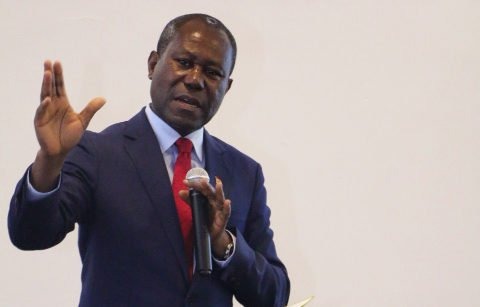The Ghana Cocoa Board (COCOBOD) spent almost a billion Ghana cedis last year to rehabilitate aged cocoa farms and those ravaged by swollen shoot virus disease (SSVD) to help increase national production in the short to medium term.
The money was used to fund the cutting down of diseased and aged cocoa trees, nursing and planting of seedlings, as well as maintaining the rehabilitated farms before handing them over to farmers across the country.
The Chief Executive Officer (CEO) of COCOBOD, Joseph Boahen Aidoo, said the investment in farmers and farms led to the board’s administrative cost increasing to GH¢3.4 billion last year.
Consequently, Mr Aidoo said COCOBOD did not spend GH¢3.4 billion on its head office, saying a chunk of the funds was used to support cocoa production and the welfare of the crop farmers.
Media reports
The CEO and his deputy in charge of Finance and Administration, Ray Ankrah, were reacting to reports that COCOBOD’s administrative expenses rose to GH¢3.4 billion last year when cocoa production fell.
Cocoa farmers to benefit from the GH¢942m COCOBOD investment
“Our audited accounts and the Auditor-General’s report as captured in the 2023 financials show clearly that included in the administrative cost is a GH¢943 million expense incurred on our productivity enhancement programmes (PEPs).”
“The GH¢943 million was actually used to rehabilitate diseased and moribund farms to sustain the livelihood of the affected farmers and increase cocoa production, starting with the 2024/25 season,” Mr Ankrah said in an interview.
He explained that but for that one-off expenditure, which he said was funded from a loan secured from the African Development Bank (AfDB), the administrative cost actually reduced in 2023.
The non-curable SSVD reduces yields of cocoa trees before killing them. Data show that a large portion of Ghana’s total cocoa farmlands are either moribund or affected by the disease, partly contributing to reduced production.
COCOBOD’s CEO said people needed to understand that rehabilitation of cocoa farms was a necessity to sustain the sector and the livelihoods of the crop farmers.
He said that but for such a drastic and visionary effort, the country’s cocoa-productive land area would have shrunk, leading to reduced yields with all the attendant benefits derived from cocoa.
Mr Aidoo stated that COCOBOD was working tirelessly to revive cocoa production after extreme weather conditions, technically called ‘El Nino effect’, affected the country’s cocoa sector, resulting in a decline in output.
He said some of the rehabilitated farms would start contributing to national output next season and that would increase production.
The CEO was, therefore, confident that the country would produce more than 800,000 tonnes of cocoa in the 2024/2025 season that opens in September.
Inputs
Mr Aidoo assured farmers of an adequate and timely supply of inputs next season to facilitate their work for increased production.
He said COCOBOD was keen on making it easier and comfortable for farmers to produce cocoa and would, therefore, invest appropriately to reduce the challenges impeding their work.
He mentioned the board’s hand pollination, pruning and irrigation schemes as some of the efforts used to increase production.
Mr Aidoo said those measures were also making cocoa farming more attractive to the youth, leading to more young people joining the venture.
Financial turnaround
For his part, COCOBOD’s Deputy CEO in charge of Finance and Administration said beyond working to raise output, the board was putting in place prudent measures to revive its fortunes, which were ravaged by the effects of the COVID-19 pandemic.
Mr Ankrah said COCOBOD’s return to profitability last year was clear evidence of that commitment.
COCOBOD’s audited accounts and the Auditor-General’s 2023 report on public boards and corporations showed that COCOBOD made a GH¢2.3 billion profit last year compared to a GH¢4.2 billion loss in 2022.
The deputy CEO was confident that the turnaround would be sustained and improved to help strengthen COCOBOD’s ability to support farmers and the sector.
Mr Ankrah assured farmers of better policies and programmes next season in line with the government’s commitment to improving farmers’ livelihoods.
Source: dailygraphic


